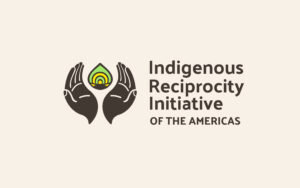The Chacruna Institute and Sacred Plant Alliance filed this amicus brief on October 17, 2023 in support of the plaintiff church in the Iowaska Church of Healing v. United States case, to emphasize to the U.S. Court of Appeals for the D.C. Circuit why the decision in the lower court, the district court, was wrongly decided.
This case involves an ayahuasca church’s rights to free exercise of religion, protected under the federal Religious Freedom Restoration Act (“RFRA”), and to obtain IRS recognition of its 501(c)(3) nonprofit status as a church.
This case involves an ayahuasca church’s rights to free exercise of religion, protected under the federal Religious Freedom Restoration Act (“RFRA”), and to obtain IRS recognition of its 501(c)(3) nonprofit status as a church.
The federal tax code provides that certain nonprofit entities organized for and operating to conduct exempt activities, including churches, may obtain an IRS determination of their 501(c)(3) tax-exempt status if their activities are legal and consistent with public policy. Receiving formal recognition of a church’s 501(c)(3) status from the IRS comes with substantial financial and reputational benefits, including confirmation that church donations will be tax deductible and that the church’s income will be tax exempt.
Find more information on the upcoming Psychedelic Culture Conference.
Separately, RFRA requires that the federal government shall not substantially burden the sincere exercise of religion, even if the burden results from a rule of general applicability, unless the government demonstrates that application of the burden (1) is in furtherance of a compelling governmental interest and (2) is the least restrictive means of furthering that compelling governmental interest. Importantly, RFRA was enacted in 1993 specifically to redress a Supreme Court decision that had failed to protect the religious use of a psychedelic sacrament. The Supreme Court has since applied RFRA to uphold an ayahuasca church’s right to receive an exemption from the Controlled Substances Act (“CSA”) to practice its religious beliefs, including serving its sacrament, ayahuasca. After that decision, the DEA issued a non-binding Guidance document that purports to allow sacrament churches to apply for an exemption from the CSA under RFRA. To Chacruna’s knowledge, however, DEA has not granted a single application for an exemption from the CSA under the Guidance. And worse, DEA requires religious applicants for CSA exemptions to cease all sacrament ceremonies while awaiting a decision from DEA—a decision that they might not receive for years, if they receive a response at all.

Discover the Indigenous Reciprocity Initiative of the Americas
In this case, which began in 2019, the Iowaksa Church of Healing (the “Church”) applied to the federal government for (1) IRS recognition of its 501(c)(3) status as a church, and (2) a DEA-granted CSA exemption to use ayahuasca in ceremony. But, even though the Church told the IRS that its ceremonial ayahuasca use was protected by RFRA, the IRS issued an adverse determination, stating that the Church’s religious purpose was illegal because the DEA had not acted on the Church’s CSA exemption application, and that the Church was therefore not a tax-exempt organization—indeed, according to the IRS, the Church was “not [even] a church.”
In the meantime, the Church also made multiple requests to DEA to act on its CSA exemption application but received no response. As of 2023, the DEA has still not acted on the Church’s 2019 CSA exemption application.
Having been wrongfully denied recognition of its 501(c)(3) church status, the Church sued the IRS and the United States, claiming among other things that the IRS’s adverse tax-exemption determination constituted a substantial burden on the Church’s religious practices in violation of RFRA.
But despite the Church’s showing that the IRS’s denial of tax-exempt status caused specific financial and reputational injuries to the Church, the district court concluded that the Church lacked standing to sue the IRS. According to the district court, it was only the CSA’s scheduling of ayahuasca and the Church’s failure to receive a CSA exemption from the DEA that injured the Church, and the district court said the IRS’s adverse 501(c)(3) determination caused the Church no separate injury. The district court dismissed the Church’s suit, and the Church appealed.
Our brief explains why the district court’s decision was wrong and should be reversed.
Our brief explains why the district court’s decision was wrong and should be reversed: the Church suffered injuries from the IRS’s failure to engage in the particularized analysis required by RFRA when government action (here, determining 501(c)(3) status) substantially burdens religious exercise. The IRS’s denial of 501(c)(3) status burdens the Church’s religious exercise by causing it financial harm (including by preventing the Church from receiving tax-deductible donations), and reputational harm through the IRS’s denigration of its religious beliefs as “illegal” and the IRS’s assertion that the Church is “not a church.”
These burdens violate the Church’s RFRA rights, which is particularly alarming because RFRA was specifically designed to protect minority religions like sacrament churches and the IRS is empowered to decide what is a ‘church’ under the law.
As such, the IRS must apply RFRA and satisfy strict scrutiny when determining whether a church’s purpose is illegal or contrary to public policy. The IRS is already responsible for evaluating a church as defined by the Internal Revenue Code, and according to its own publications, IRS determinations of a church are based on the sincerity of the applicant’s particular beliefs and practices, consideration of public policy and case law, and the compelling interests of the government—the exact concepts required for a RFRA analysis. In fact, the IRS also considers whether activities that may be illegal or legal in certain circumstances, such as gambling, are exempt. Thus, the IRS engages in particularized determination, so requiring a RFRA analysis—whether use of controlled sacrament is religious and therefore the applicant is an exempt church—creates no administrative harm to the IRS.
Our brief also highlights the dangers of the district court’s conclusion that the Church must wait for the DEA to grant a CSA exemption before seeking recognition of 501(c)(3) status. First, the DEA’s Guidance is not binding, so churches like the Church cannot be required to utilize its procedures, as the district court wrongly ruled. Second, the Guidance itself impermissibly burdens the practices of sacrament churches, because it doesn’t provide a specific timeline by which DEA must act nor a clear legal framework by which applications will be evaluated. And the Guidance purports to require sacrament churches to cease all ceremonies while they wait for a DEA determination that may never be forthcoming (the Church has been waiting for four years and counting).
If the Court of Appeals does not reverse and remand, sacrament churches will have no meaningful avenue to obtain recognition of 501(c)(3) status or CSA exemptions permitting their sincere religious practices, in violation of their rights under RFRA.
If the Court of Appeals does not reverse and remand, sacrament churches will have no meaningful avenue to obtain recognition of 501(c)(3) status or CSA exemptions permitting their sincere religious practices, in violation of their rights under RFRA. Chacruna and SPA hope that their amicus brief will assist the Court of Appeals, which should reaffirm the federal rights of churches and the religious minority, like the Church, to practice their sincere religious beliefs as Congress intended to be protected by RFRA.
For this amicus brief, the Chacruna Institute and Sacred Plant Alliance are represented by Matthew C. Zorn and David J. Gutierrez of Yetter Coleman LLP, Rebecca Lee Whiting of Epigram Legal PC, and Allison Hoots of Hoots Law Practice PLLC.
Learn more about when and why amicus briefs are filed HERE.

Shop our Collection of Psychedelic T-Shirts.
Take a minute to browse our stock:
Did you enjoy reading this article?
Please support Chacruna's work by donating to us. We are an independent organization and we offer free education and advocacy for psychedelic plant medicines. We are a team of dedicated volunteers!
Can you help Chacruna advance cultural understanding around these substances?

















